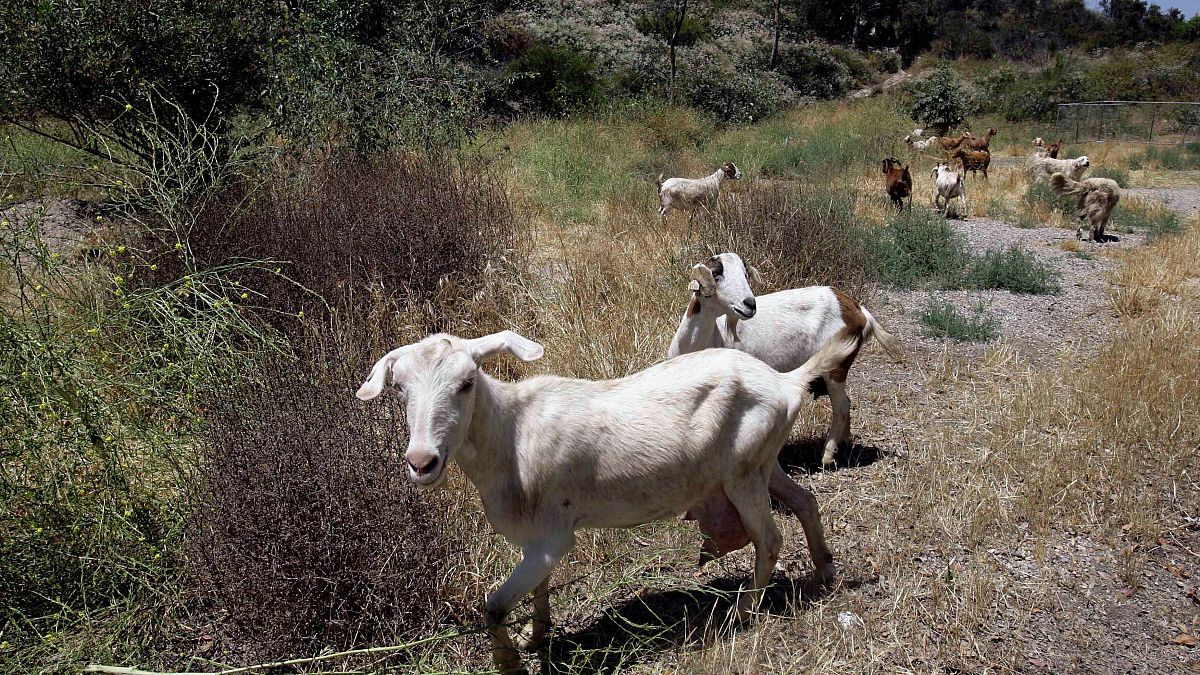The re-emergence of the highly contagious peste de petits ruminants (PPR), also known as the ‘goat plague,’ in Europe, particularly in Greece and Romania, has caused significant challenges for the livestock industry and the production of Greece’s signature feta cheese. The outbreak, first detected in Thessaly, central Greece, has led to the culling of nearly 58,000 sheep and goats to prevent further spread. Greek authorities have imposed nationwide restrictions, including a ban on moving sheep and goats from their farms, in an effort to combat the viral disease.
Greece’s domestic livestock industry, particularly in Thessaly, where a significant portion of sheep and goat milk is produced for feta cheese, has been severely impacted by the outbreak. Greece produces around 140,000 tonnes of feta annually, with about 65% of production being exported globally. The disease, although not transmissible to humans, requires the culling of large numbers of animals, affecting livestock production and causing significant economic losses in the region. The World Organization for Animal Health (WOAH) has highlighted the severe morbidity and mortality rates associated with PPR, emphasizing its high economic impact in regions where goats and sheep are essential food sources.
The European Union has taken urgent measures to address the spread of PPR in Greece and Romania. The EU executive adopted procedures to restrict the movement of susceptible commodities while ensuring safe trade and maintaining sanitary standards. The European Food Safety Authority (EFSA) has acknowledged the critical situation in both countries and stands ready to provide scientific support if requested. Control measures recommended by EFSA include immediate quarantine of affected herds, restrictions on animal movements, intensive surveillance, establishment of surveillance zones, and mass vaccination of susceptible animal populations to create herd immunity and prevent further outbreaks.
The PPR virus, first identified in 1942 in the Ivory Coast, has since spread to over 70 countries in Africa, the Middle East, and Asia. The disease presents symptoms such as depression, fever, nasal and ocular discharges, respiratory distress, diarrhoea, and death in animals. Implementing strict biosecurity measures on farms such as disinfection, controlling human movement, and ensuring hygiene can significantly help in controlling and eradicating the goat plague. While the disease does not pose a direct threat to humans through meat or milk consumption, it remains a critical concern for the livestock industry and the global dairy market, particularly in regions heavily reliant on small ruminants for food production.
In conclusion, the resurgence of the ‘goat plague’ in Europe, particularly in Greece and Romania, has highlighted the vulnerability of the livestock industry to viral diseases such as PPR. The impact of the outbreak on Greece’s feta cheese production, a significant contributor to its economy, underscores the need for stringent control measures and international cooperation to prevent further spread. The EU’s response to the crisis, through the adoption of urgent procedures and support from organizations like EFSA, demonstrates a coordinated effort to address the disease and protect animal health and livelihoods. By implementing comprehensive surveillance, containment, and vaccination strategies, countries can effectively combat the goat plague and safeguard their small ruminant populations from the devastating effects of PPR.











